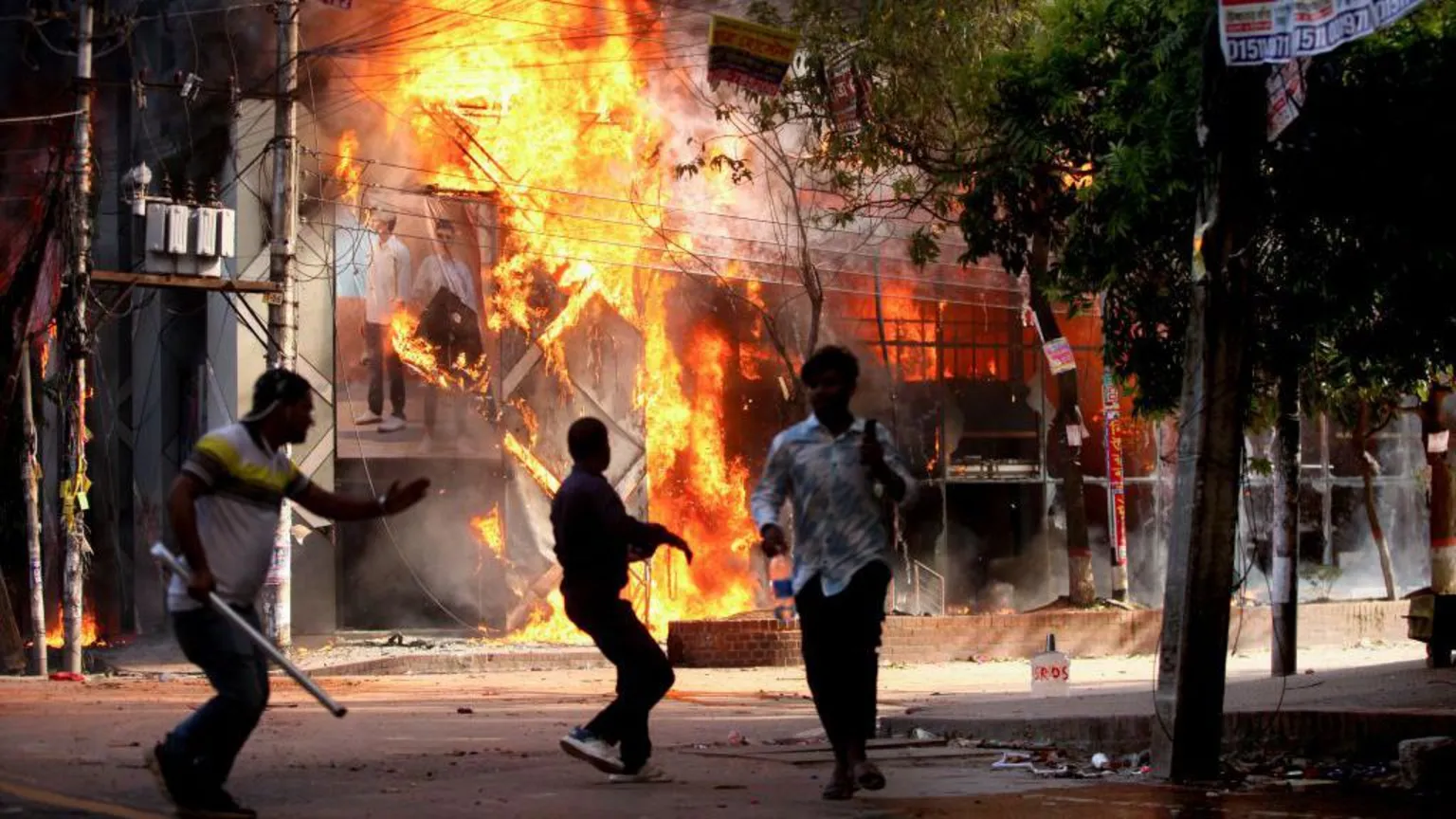Deadly Clashes in Bangladesh: Over 80 Killed Amid Escalating Anti-Government Protests
Deadly Clashes in Bangladesh: Over 80 Killed Amid Escalating Anti-Government Protests
Meta Description: Over 80 people have been killed in Bangladesh as clashes between police and anti-government protesters intensify. The unrest has escalated into a major crisis, with widespread violence and calls for Prime Minister Sheikh Hasina to resign.
Keywords: Bangladesh protests, anti-government protests, Sheikh Hasina, police clashes, civil disobedience, Dhaka violence, Bangladesh news, student protests
Violent Clashes Erupt in Bangladesh: Over 80 Dead as Anti-Government Protests Intensify
In a dramatic escalation of civil unrest, over 80 people have been killed in Bangladesh as violent clashes between police and anti-government protesters spread across the nation. The unrest, which erupted over a month ago, has now reached a critical point, with severe consequences for both civilians and law enforcement officials.
Unrest Begins with Student Protests
The protests began as a student-led movement demanding the abolition of quotas in civil service jobs, which reserved positions for relatives of Bangladesh’s war veterans. Initially, the movement focused on this issue, but it has since evolved into a broader anti-government campaign. Students and opposition supporters have taken to the streets to call for the resignation of Prime Minister Sheikh Hasina, arguing that her administration has failed to address their grievances adequately.
Violence and Casualties
The situation turned deadly on Sunday when thousands of protesters attacked a police station in the Sirajganj district, resulting in the deaths of 13 police officers. This violence has significantly heightened tensions and resulted in a tragic loss of life. Reports indicate that both police and some pro-government supporters have used live ammunition against protesters. The use of tear gas and rubber bullets has also been widespread, further exacerbating the violence.
Since the protests began in July, the death toll has surpassed 270, with casualties reported across various regions, including Bogra, Pabna, and Rangpur. In the capital city of Dhaka, access to mobile internet has been suspended as part of a nationwide curfew imposed since 6:00 PM (12:00 GMT). The city has seen severe disruptions, including violent incidents and property damage.
Government Response and Public Reaction
In response to the escalating violence, Prime Minister Sheikh Hasina has remained defiant, labeling the protesters as “terrorists” intent on destabilizing the nation. Despite calls for her resignation, Hasina has offered to engage in dialogue with student leaders, but this offer has been rejected by the protesters.
Law and Justice Minister Anisul Huq, speaking on the BBC’s Newshour program, defended the government’s actions, stating that authorities have shown “restraint” to prevent further bloodshed. He emphasized the limitations of patience in the face of ongoing violence.
Student Movements and Calls for Action
Student leaders, including Asif Mahmud of the Students Against Discrimination group, have called for intensified protests, including a march on Dhaka scheduled for Monday. The movement has also urged a nationwide shutdown of factories and public transport, alongside a call for people to withhold taxes and utility payments.
Military Involvement and International Concerns
The Bangladeshi government has called in the military to restore order amid the chaos. Army Chief Gen Waker-Uz-Zaman has assured the public of the military’s commitment to supporting the people and ensuring state stability. However, the involvement of military forces has added another layer of complexity to the crisis.
Impact on Civil Society and Future Prospects
The ongoing violence has drawn widespread criticism from various quarters, including ex-military personnel who have condemned the “egregious killings” and called for the withdrawal of armed forces from the streets. The crisis poses a significant challenge for Prime Minister Sheikh Hasina, whose administration faces increasing pressure both domestically and internationally.
As the situation continues to develop, the next few days are expected to be crucial for both the protesters and the government. The outcome of this crisis will have far-reaching implications for Bangladesh’s political landscape and its path forward.
Source: BBC


